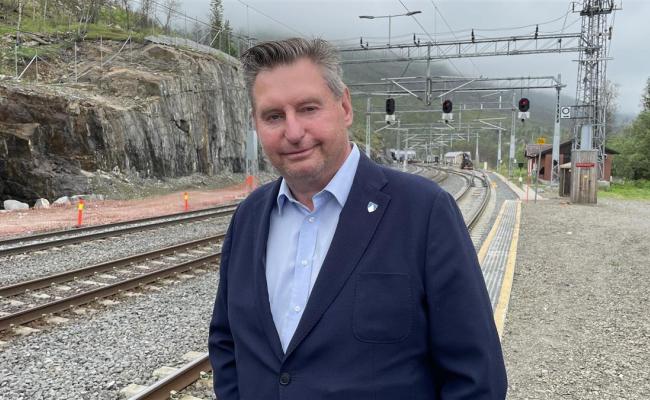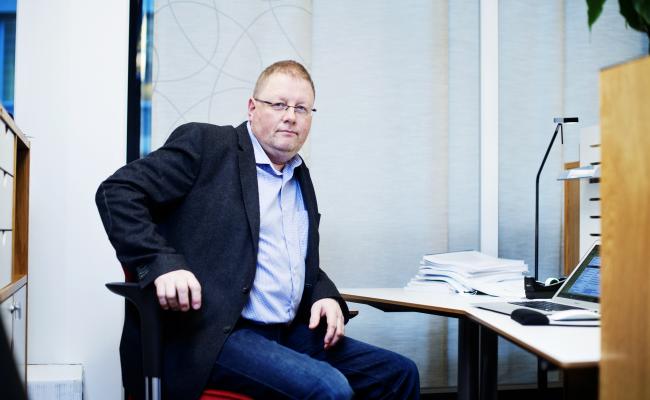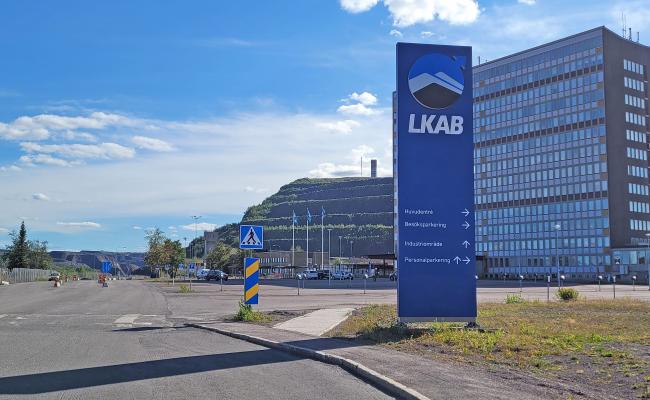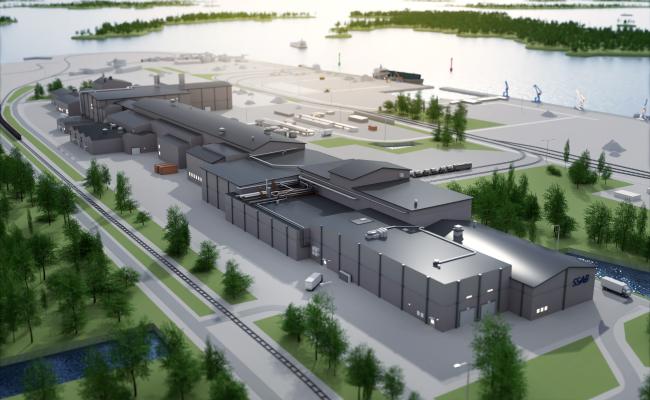Iron Ore Line Issues Continue to Impact LKAB: Cut in Production and Other Possible Measures
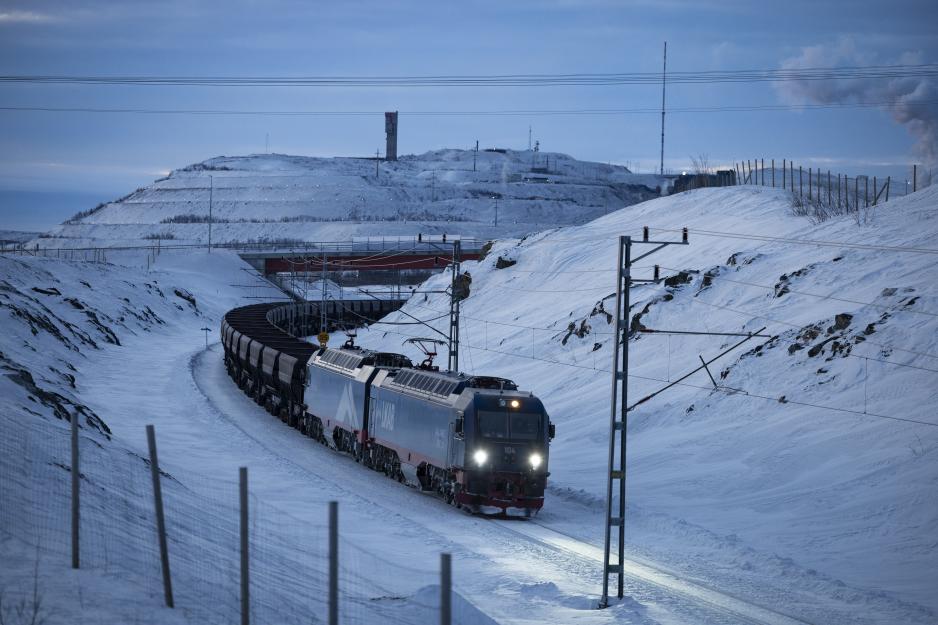
LKAB's iron ore trains transport large quantities of iron ore to the Port of Narvik in Northern Norway. The railway line, also known as the Ofoten Line on the Norwegian side, stretches between Norway and Sweden in the North. (Photo: LKAB)
The mining company LKAB in Northern Sweden is now cutting production due to the reduced capacity of the Iron Ore Line. The company believes it might need to take even more drastic measures to limit production, which could lead to a loss of income of around SEK 5 billion annually.
"We are forced to cut production. The first step has been to reduce about one million tonnes per year. However, the situation is so dire that if we cannot run more iron ore trains, we must shut down even more operations and notify the staff of redudancies."
The CEO and President of LKAB made the statement in a press release on Wednesday.
Two major derailments on the Iron Ore Line this winter have created extensive problems for the mining company, transporting large amounts of iron ore on the railway stretch from Norrbotten in Northern Sweden to the Port of Narvik in Northern Norway.
After the last derailment on the Iron Ore Line at the end of February, traffic had already stopped for two months due to the derailment in December.
Large quantities in storage
According to LKAB, the company lost SEK 100 million daily while the Iron Ore Line was closed.
Iron ore products corresponding to over 600 fully loaded trains are now stockpiled in Kiruna and Svappavaara, and it is unclear when they can be delivered to customers.
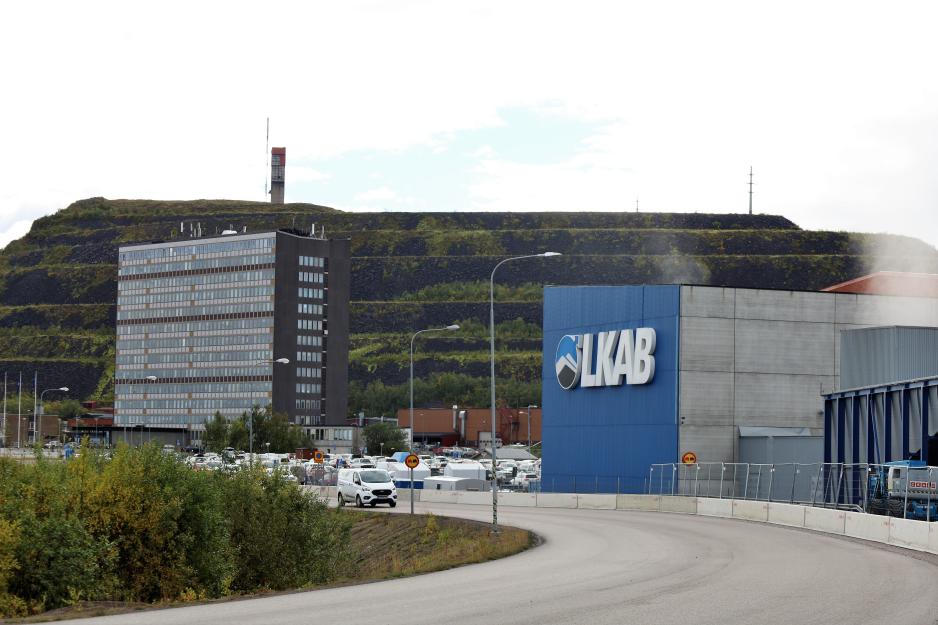
LKAB operates several iron ore mines in Kiruna and other places in Norrbotten, Northern Sweden. The company is Europe's largest iron ore producer. (Photo: Arne O. Holm / High North News)
Greater measures may prove necessary
LKAB emphasizes that the iron ore stocks have not decreased despite the resumption of traffic.
Soon, work will begin on the tracks, which entails even lower capacity on the railway stretch.
"The problem is not excess ore stocks per se, but the fact that there is insufficient delivery capacity to meet our planned production leading forward. If no measures are taken, our stocks will continue to grow dramatically over the coming years. Planned maintenance work on Malmbanan [the iron ore line, ed.note] reduces capacity even more since traffic must be halted for long periods," says Moström and continues:
"If, together with the Swedish Traffic Administration and Norwegian BaneNor, we are unable to realize a major increase in freight capacity within the existing system, we will be forced to take even more drastic measures. In that case, one pelletizing plant and the associated concentrating plant and mine production must be shut down. That would entail redundancies."
The Ofoten Line / the Iron Ore Line
- Stretches from Narvik in Northern Norway to Boden in Northern Sweden with a branch to Luleå (about 50 miles).
- Essential to passenger and freight traffic, as well as iron ore traffic.
- Has a single track, making it very vulnerable to derailments.
- Characterized by low capacity and overloading.
- Opened in 1902. Its main purpose was transport of iron ore from the mines in Norrbotten.
Risks losing SEK 30 billion in income
LKAB is considering closing down in Kiruna or Svappavaara based on what would be least damaging to the company. The company writes that discussions with trade union representatives concerning possible measures have been initiated.
According to LKAB, the financial consequences of further production cuts would mean revenue losses amounting to 5 billion kronor per year, or about 30 billion kronor up to 2030, in terms of today's prices.
“We have already been forced to restrict crude-ore transports between Svappavaara and Malmberget, thereby lowering production in Malmberget by one million tonnes per year, corresponding to revenue of more than one billion kronor at current prices."
"Among other measures, we will also reduce the amount of external labor and transfer more work to our own personnel. It is a matter of reducing costs when production volumes drop and retaining as much of our expertise as possible if we are forced to close parts of our operation. If we end up in that situation, we will need to be able to start up quickly again, as soon as transport capacity allows," continues Moström.
In 2023, the Swedish state-owned mining company LKAB had a dividend of SEK 16 billion. The company's sales in 2023 decreased to SEK 42,9 billion from 46,5 billion in 2022.
LKAB's dividend to the Swedish state was a whopping SEK 7,6 billion. This is 50 percent of the SEK 15,2 billion profit for the year. The profit in 2022 was also approximately SEK 15 billion.
Need for a double track
In the wake of the derailments this winter, the debate about double tracks on the Iron Ore Line has once again resurfaced. The railway corridor between Norway and Sweden in the North has been very important in transporting iron ore, food, people, seafood, and other cargo.
"The derailment shows how extremely important the railway is for today's users. An estimate after a stop in traffic for just over six weeks shows market consequences of somewhere between NOK 5-7 billion regarding iron ore, fish, and other goods," said Port Director of the Port of Narvik, Børge Edvardsen Klingan, in an interview with High North News in the middle of February.
“Over the past year, we have invested nearly one billion kronor to strengthen our own means of managing the growing number of disruptions on the railway," says Moström.
Both he and Narvik Mayor Rune Edvardsen are among those who have been clear on the necessity of a double track on the railway by 2035.
Over the past 20 years, LKAB has highlighted the risks of the lack of capacity on the railway, the need for expanded maintenance of existing systems and the need for double tracks – which will also benefit other parts of society, writes the company.
Also read
Working to avoid redundancies
Assessments in the Swedish Transport Administration capacity analyses show that, despite measures planned until 2030, the railway's capacity will be impaired between 2022 and 2030, when other traffic is expected to increase even more.
"This situation cannot be resolved by making a few simple changes. We will do everything possible to avoid closing a pellet plant and laying people off. Together with Trafikverket (the Swedish Transport Administration, ed.note] and others, we will attempt to increase rail traffic so that we can start to reduce the volume of stockpiled products or at least stop building up more. If this is possible, we will have to turn over every stone to find ways of making it happen," emphasizes the CEO.
According to the company, high hopes are placed on the outcome of efforts that the Swedish Transport Administration has initiated to improve efficiency in track maintenance and planning.
"We now await clear political decisions on the expansion of capacity, both in the short term and in the long term, in addition to what is already planned, to achieve the capacity needed on the line," concludes Moström.



